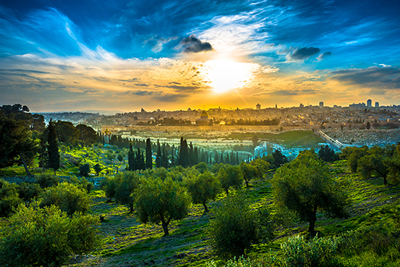This Passover is Different and the Same


This Passover is Different and the Same
Ma Nishtana ha-Pesach hazeh? How is this Passover different? Coronavirus! What was unimaginable even a month ago seems clear now: Most people are not going to gather in person for Passover Seders. Many will use laptops and phones for virtual Seders, which could conjoin more people than usual. Perhaps families from across the country and even the world will unite virtually. Of course we worry about elders who are alone and may not have technological know-how. One of the great aspects of being a resident at the Los Angeles Jewish Home is that, even in a world of social distancing practices, no one is forgotten or alone here.

What lessons can Passover teach us about navigating through the world we are living in today with the coronavirus on the verge of surging in our country:
- Washing hands is an ethical, Jewish act. Hand washing exists as a daily Jewish ritual that precedes saying the motzi blessing to start a meal. The blessing culminates with, "al netilat yadaim," which means "lift up the hands." We elevate ourselves before we eat, by symbolically lifting our hands up. But the Passover Seder is the one meal of the year when we wash our hands twice, once with and once without a blessing. Why? Water is life, and the water sanctifies our hands for mitzvot. You can have a heart of gold but it is the action you take with your hands that makes all the difference in the world. One person uses their hands to hoard paper goods. Another uses their hands to call a lonely person. We are living in a period when hand washing can slow down the viral spread and ultimately save lives. The more you wash, the better for everyone. And the more you use your hands for good and not greed, the prouder you will be of yourself when all of this is over.
- Memory, imagination and optimism are core to Jewish survival. The foundation of a Passover Seder is to imagine ourselves as if we were slaves in Egypt, so that we will remember the pain of the enslaved and be compassionate toward and activistic on behalf of anyone who is oppressed. But the Seder is a journey. At the beginning of the Seder we are slaves, but at the end we are free. As psychiatrist Victor Frankl points out in Man's Search for Meaning, people who thrive most during frightening and difficult times are those who can both remember sweet moments of the past and imagine a future of joy, purpose and meaning. We should already begin picturing life after Coronavirus. Write about it, talk about it, paint about it. Envision. Dream.
- We are one. After Egypt, the Jewish People could have concluded that the world is unkind and we should look out for ourselves. Instead what emerges is a Torah that instructs 36 times to love the stranger because we were strangers in the land of Egypt. In the era of Covid-19 there is no such thing as a stranger. We can draw borders and build walls. We can name our cities, states and countries. We can imagine those who look different from us or who speak a different language are separate from us. But the virus does not care about your language or accent, your skin color or your ethnicity. It does not see borders nor recognize your political orientation. The virus reminds us that we are one humanity and we are in this together.
When the bread couldn't rise we baked matzah. When the world was cruel to us we re-established the state of Israel. When there has been darkness in any form we have brought light, humor and hope. May your Passover be filled with elevation of hands and heart, with memory, imagination, connection, celebration, generosity, health, hope and love!